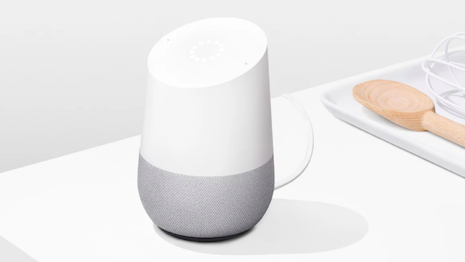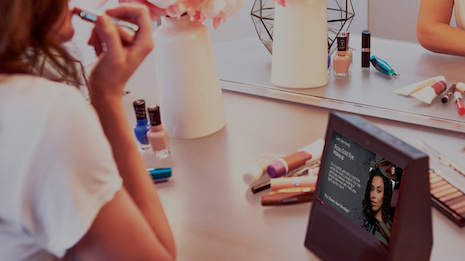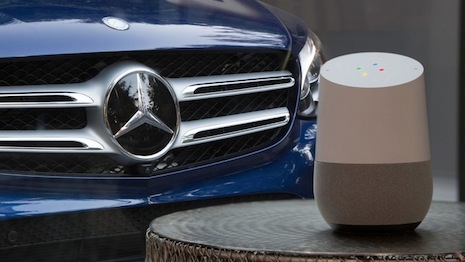 Voice assistants such as Google Home are gaining traction but lack interest in retail experiences. Image credit: Google
Voice assistants such as Google Home are gaining traction but lack interest in retail experiences. Image credit: Google
Experts are anticipating a crucial shift in luxury retail towards voice assistance, but as of right now there is a slim market for purchasing through speech.
The "Reimagining Commerce: Global Findings" report from Episerver shows that around 60 percent of voice-activated artificial intelligence assistant owners do not use them to search for products and fewer actually purchase anything. In addition, smartwatches are also failing to gain much market share of product browsing or buying.
"While consumers are willing to shop across channels now, they're still warming up to new devices like voice assistants and smartwatches," said Ed Kennedy, director of digital commerce strategy at Episerver, Nashua, NH. "It's up to brands and retailers to set the tone here and nail down the search experience on these devices to ease customers into shopping with new technologies.
"Regardless of device, consumers expect frictionless and personalized shopping experiences that are consistent from one device to the next, and the brands who get this right across devices will emerge as the commerce leaders of tomorrow."
For its research, Episerver surveyed 4,000 online shoppers in four different markets worldwide.
Future is not yet here
About 66 percent of consumers who own smartwatch devices will not and have not browsed retail through their watches. Seventy percent of these owners have not completed a purchase through the smartwatches either.
While voice activation and smartwatches are behind in retail, in the past consumers felt similar in regards to purchasing on smartphones.
 Coty Inc. looks to the future with Amazon. Image credit: Coty Inc.
Coty Inc. looks to the future with Amazon. Image credit: Coty Inc.
Experts predicted big things for retail on smartphones, but it took some time for consumers to adapt to the experience. Since technology has become exponentially better, now 75 percent of consumers use their mobile devices to browse retail, with 29 percent doing so daily.
Another 57 percent make purchases through their smartphones and about half will browse for products on a weekly basis.
The growth of mobile devices has left shoppers more open to new retail experiences. For instance, almost 60 percent of those surveyed said they would be interested in using chat services to help with their shopping.
An additional 57 percent are interested in or have already used smart mirrors in fitting rooms at bricks-and-mortar locations.
Virtual reality is also becoming an interesting aspect of retail, with even 40 percent of shoppers saying they have interacted with VR in stores or would be open to it.
 Mercedes partners with Google Home. Image credit: Mercedes.
Mercedes partners with Google Home. Image credit: Mercedes.
These technology-driven experiences can be important in attracting today’s affluent and mass-market customers, but the key seems to lie with their usefulness.
More than half of the survey takers who were uninterested in new technological features claimed it was because the functions made no improvement to their experiences.
Brands and voice
Despite the masses' aversion to shopping through voice assistants right now, many luxury brands are anticipating the shift with voice integration.
For instance, German automaker BMW is enabling owners to operate functions of their vehicles from inside their homes by integrating Amazon’s Alexa voice service.
An extension of the BMW Connected application that allows for remote control of functions and journey management, this latest development adds voice commands. BMW was the first automaker to announce Alexa compatibility within the United Kingdom and Germany (see more).
Beauty marketer Estée Lauder has also embraced the new trend by collaborating with Google on personalized voice-activated tool for Google Home.
Through the tool, called the Estée Lauder Nighttime Expert application, customers can get personalized beauty tips and recommendations, curated by the brand, delivered to them just by asking their Google Home device. Beauty is a sector that can make great use of voice assistant technology due to customers often using both hands and looking in the mirror while applying cosmetics (see more).
"Today's shoppers are interested in technology-rich experiences, but only if it's done right," said Joey Moore, director of product marketing at Episerver. "Rather than introducing novel technology for the sake of doing so, brands should implement tools like smart mirrors in-store and facial recognition sign-in online to make shopping easier, fast, more convenient and engaging."